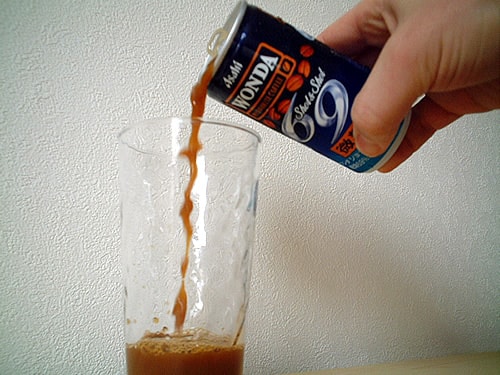Special tax will be imposed on coffee and tea with a lot of sugar.
There are many types of instant tea and coffee on the market. So which types are subject to special consumption tax from 2019?
Tax soft drinks because they are... sweet
Proposed amendments to tax laws,including special consumption tax, the Ministry of Finance said: In Vietnam, the rate of overweight and obese adults accounts for about 25% of the population.
Meanwhile, according to the recommendations of the World Health Organization, sugary drinks have a negative impact on health. To guide and limit the consumption of sugary drinks, 40 countries in the world have collected special consumption tax on this type of drink, including most of the ASEAN countries.
Therefore, to guide and regulate the consumption of sugary drinks and in accordance with international practices, the Ministry of Finance proposes to add sugary soft drinks to the list of subjects subject to special consumption tax, including tea and instant coffee packaged in bottles and boxes according to industrial production lines.
|
| Many opinions disagree with taxing instant tea and coffee. Illustrative photo |
Instant tea and coffee products with “no sugar” or “sweeteners” are not subject to special consumption tax.
The Ministry of Finance proposed applying a tax rate of 10% from 2019.
However, the Vietnam Tea Association believes that: Applying special consumption tax on instant tea products packaged on industrial production lines, a current market trend, is contrary to the criteria for developing new products and developing products with added value, reducing the competitive advantage of the products.
The Vietnam Coffee and Cocoa Association also proposed to consider not including instant coffee soft drinks packaged in industrial production lines in the list of goods subject to special consumption tax, because if applied, it would directly affect domestic producers, processors and consumers.
The Vietnam Chamber of Commerce and Industry (VCCI) acknowledged: The objective of the draft when proposing to put soft drinks under the special consumption tax at a rate of 10% is reasonable, for public health and public interests. However, there is currently no more specific assessment of how much such a 10% tax on soft drinks will slow down the rate of obesity increase in Vietnam. This is the most important factor to consider regarding the effectiveness of tax policy.
Clarifying what level of sugar in soft drinks should be taxed
In addition to answering questions about the effectiveness of tax measures compared to policy objectives, VCCI believes that it is also necessary to anticipate some negative impacts of this policy.
According to VCCI, the 10% tax may not have much impact on urban families, but it will have a significant impact on the spending power of many families in rural and remote areas. The soft drink tax may not only take away the joy of rural children but may also slow down the process of eliminating child malnutrition.
In addition, the soft drink tax also has a great impact on businesses and farmers. According to the proposed taxation method of the Ministry of Finance, not only soft drink manufacturing businesses, sugar cane businesses, sugar cane farmers will be affected, but it can also affect businesses and farmers in the coffee, tea, fruit, and even milk industries (although dairy products are not taxed, but if milk coffee, milk tea, and fruit milk are taxed, they will be).
The Ministry of Agriculture and Rural Development admits: Domestic and foreign studies agree that the abuse of sugary drinks leads to overweight and obesity, increasing the risk of cardiovascular diseases and diabetes.
However, according to the Ministry, there has been no research that mentions the abuse of instant tea and coffee leading to overweight and obesity, leading to increased risks of cardiovascular diseases and diabetes in Vietnam, especially in children - the group that rarely consumes these products.
Meanwhile, current general policies aim to encourage the agricultural processing industry to help increase added value and create a market for farmers' products.
Therefore, the Ministry of Agriculture and Rural Development notes the need to clearly define the concept of "sugary drinks" to determine at what level of sugar content to classify them in this group in order to apply appropriate special consumption tax.
“Instant tea and coffee should not be included in the list of sugary drinks subject to special consumption tax,” the Ministry of Agriculture and Rural Development proposed.
However, in the latest draft, the Ministry of Finance still reserves the view of taxing instant tea and coffee with sugar.


